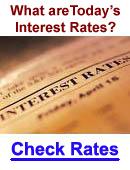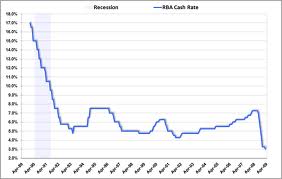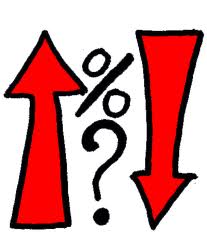Oops – you just missed the mortgage interest rate boat… or did you?
St Paul, MN: The headlines are screaming… Mortgage interest rates just hit historic lows again for the forth straight weak. The morning talk shows are asking if it is a good time to refinance your home? So is it a good time to refinance? The answer is probably yes, but let’s find out the truth about interest rates and how they work.
The main item to understand is simple. Mortgage rates go up and down everyday. Sometimes a lot. Sometimes a little. There are many factors that contribute to rate changes, but a simple one to understand is that negative stock market and negative economic news is good for long-term mortgage interest rates. Good news is bad for rates.
The next big item to understand is all lenders are virtually the same. If one lenders rates do down, so does everyone else. They all underwrite to the same basic guidelines, they have all the same third party fees (appraisal, title company, underwriting, etc), and they all are transferring your file to Fannie Mae, Freddie Mac, FHA, etc.
Rates Change: I was quoting rates at 3.875% on Monday (10/3/2011) for an under 80% loan-to-value 30-yr fixed loan for someone with over a 740 credit score. By Friday (10/7/2011), the same deal was 4.25%. The bottom dropped out of the bond market during the week, rates went up, and every shopper who got quoted a great deal but asked if I thought rates were going to go lower just got burned.
BE CAREFUL: I just heard hear this morning another report from America’s most misleading rate information site, Bankrate.com. They just said that interest rates are in the 3’s. Hmmmm…. Really now? Be careful. On what program? With how many points, and how much blood do I have to give?
Each Thursday, Freddie Mac reports interest rates. This information is picked up by all the media and spread across all the TV, radio, and newspaper. This is perhaps the most misleading piece of news that is placed into consumers hands on a regular basis. The full story is usually edited down to Twitter sized chunks, and we only see the blurb…”INTEREST RATES HIT ANOTHER LOW” or “INTEREST RATES REMAIN LOW” and reporting about what that indicator is.
This is LAST WEEK’s news. They are telling you what closed and what was already locked previously. If you want to buy Google stock, does it matter what the average of the stock was last week, or today’s price? If the nationwide average was 4.123% two weeks ago, and the average last week was 4.122% – I guess that does count as “INTEREST RATES WENT DOWN AGAIN“.
As many of you who see the news and call around about rates have found out, that rate is not always available and now you know why.
No lender can offer you yesterday rates today. Nobody can offer you what you were looking for in the beginning: Monday’s rates! Frustration, hassle, pestering, over promising, ignorance, lies, demands, promises, etc all take place and you likely throw your hands in the air and say. FORGET IT! I’ll STAY WHERE I’M AT! You missed the boat!
You didn’t miss the boat. You almost got suckered in today’s over hyped mass media world. The reality is it is almost impossible to pick the day interest rates hit a low. Pretty much dumb luck. On the other hand, getting a mortgage interest rate that is NEAR the bottom of the market is super easy.
Partner with a professional Loan Officer, and get your mortgage application started!
 Many homeowners are thinking of refinancing to today’s historically low mortgage rates here in MN, WI, and the rest of the country. Great, yet many people make the mistake of refinancing back into another 30-year loan. Sure, you may save a few hundred dollars, but how much is it going to cost by adding back all those years? How about retirement? Wouldn’t it be nice to go into retirement WITHOUT a mortgage payment?
Many homeowners are thinking of refinancing to today’s historically low mortgage rates here in MN, WI, and the rest of the country. Great, yet many people make the mistake of refinancing back into another 30-year loan. Sure, you may save a few hundred dollars, but how much is it going to cost by adding back all those years? How about retirement? Wouldn’t it be nice to go into retirement WITHOUT a mortgage payment?

 Simply put, the lowest rate & the lowest fees do not go hand-in-hand. NO LENDER can offer both together. I can give you rock bottom rates, but it will cost you in fees. I can give you the lowest fees, but it will cost you in interest rate. Most lenders quote their best rate in combination with covering all third party fees (appraisal, credit report, title company, state taxes, county recording fees, etc) with 1% origination. See the example below.
Simply put, the lowest rate & the lowest fees do not go hand-in-hand. NO LENDER can offer both together. I can give you rock bottom rates, but it will cost you in fees. I can give you the lowest fees, but it will cost you in interest rate. Most lenders quote their best rate in combination with covering all third party fees (appraisal, credit report, title company, state taxes, county recording fees, etc) with 1% origination. See the example below.


